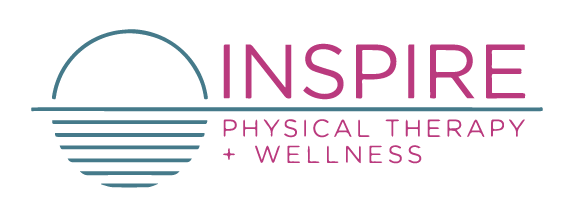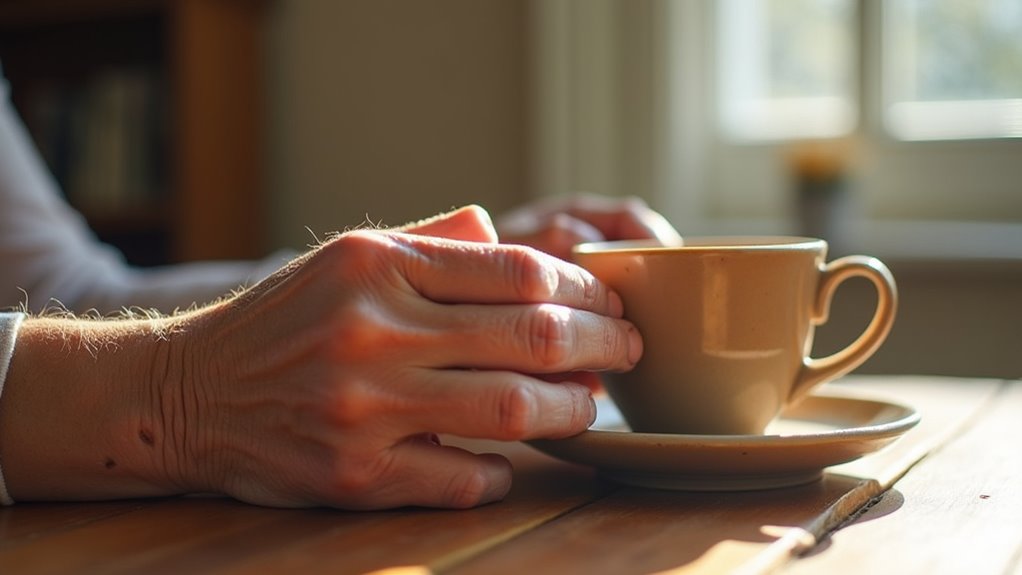Yes, health anxiety can absolutely cause real physical symptoms through your body’s stress response system. When you worry about your health, your brain triggers the “fight-or-flight” response, releasing stress hormones that create physical reactions like muscle tension, rapid heartbeat, headaches, and digestive issues. These genuine symptoms can then fuel more anxiety, creating a challenging cycle. Understanding the mind-body connection helps you recognize and manage this powerful relationship between anxiety and physical manifestations.
Key Takeaways
- Health anxiety activates the body’s stress response system, causing real physical symptoms like increased heart rate, muscle tension, and digestive issues.
- Persistent worry about health creates a feedback loop where anxiety symptoms are misinterpreted as signs of illness.
- Common physical manifestations include tension headaches, stomach pain, chest tightness, fatigue, and changes in appetite.
- The brain cannot distinguish between real and perceived health threats, triggering genuine physical responses to anxious thoughts.
- Stress hormones released during health anxiety can affect sleep, energy levels, immune function, and cause widespread bodily discomfort.
Understanding the Mind-Body Connection
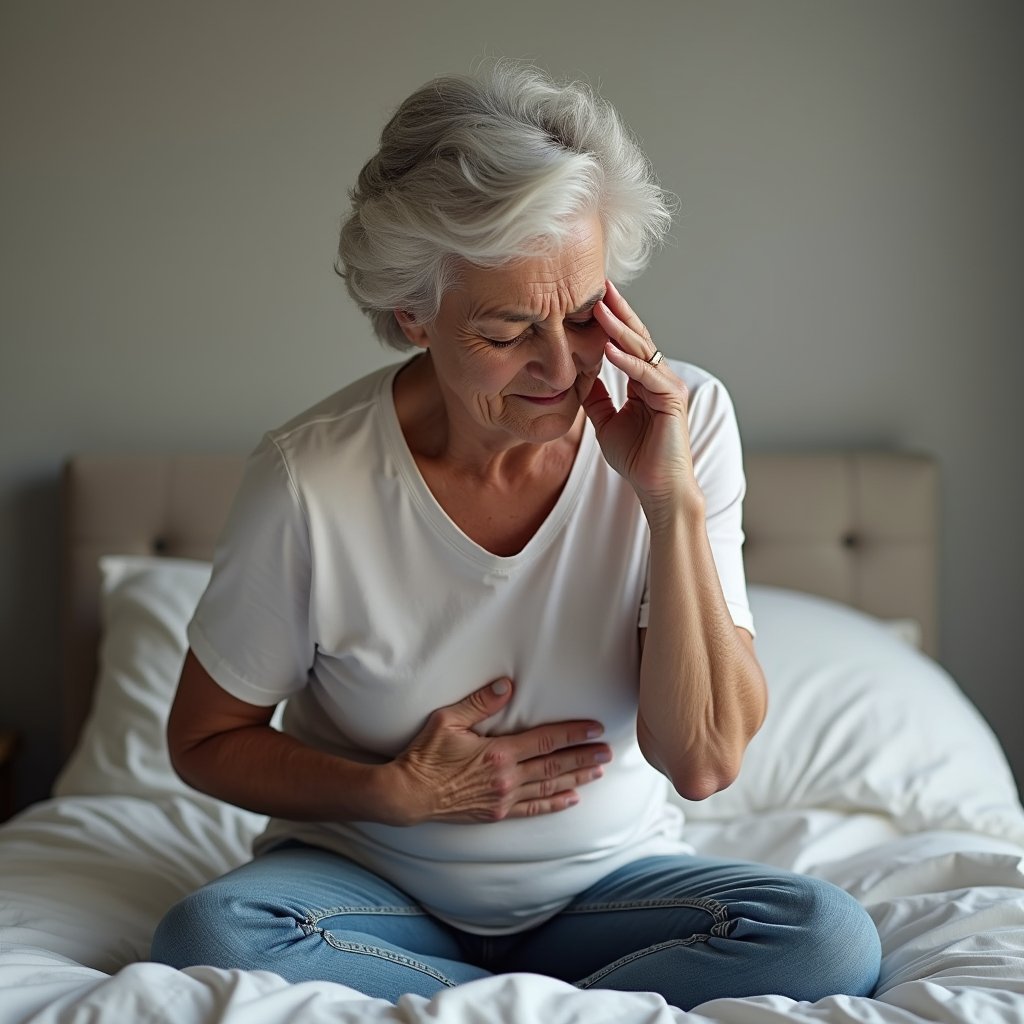
When anxiety takes hold of your mind, it frequently manifests as physical symptoms throughout your body. This connection occurs through your autonomic nervous system, which triggers different physiological responses during periods of stress. Your brain doesn’t distinguish between perceived and actual threats, leading to real physical reactions.
Through mind awareness, you can observe how your thoughts directly influence bodily sensations. The emotional impact of health anxiety creates a feedback loop: worrying about symptoms intensifies them, which then increases your anxiety further. Research shows that this cycle can result in muscle tension, increased heart rate, digestive issues, and other tangible symptoms. Understanding this intricate relationship between your mental state and physical well-being is essential for managing health anxiety effectively.
Common Physical Manifestations of Health Anxiety
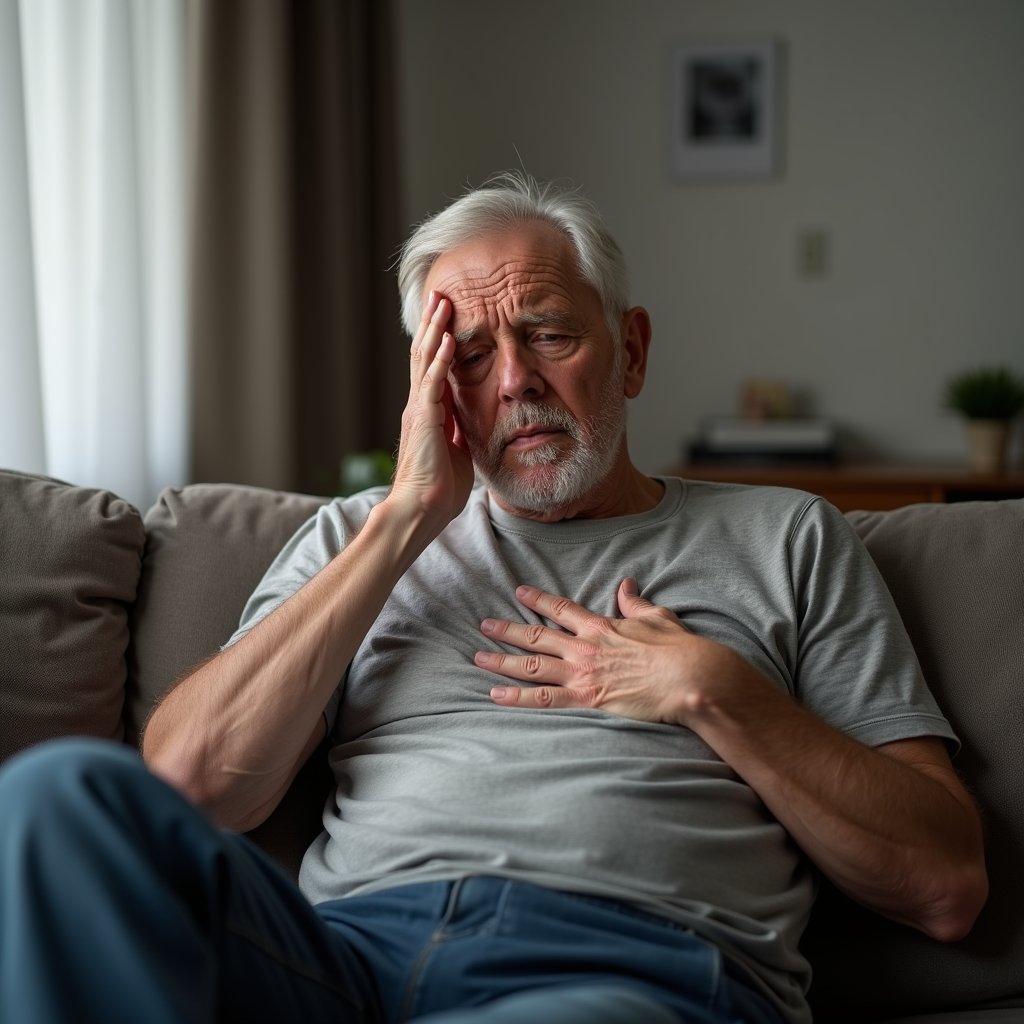
Health anxiety sufferers commonly experience a distinct set of physical symptoms that can mimic different medical conditions. Your body’s stress response to health-related fears can trigger numerous physiological reactions, leading to real and distressing symptoms.
Physical symptoms from health anxiety are real manifestations of stress, creating genuine discomfort that can mirror various medical conditions.
- Tension headaches and muscle tension often develop in your neck, shoulders, and back due to prolonged stress and hypervigilance about health concerns
- Gastrointestinal distress manifests as stomach pain, nausea, or changes in appetite, directly linked to your anxiety response
- Chest tightness and hyperventilation episodes can occur when you’re particularly focused on heart or breathing-related health fears
- Fatigue symptoms frequently appear as your body deals with the constant state of heightened alertness and worry
These physical manifestations create a challenging cycle, as the symptoms often reinforce your health-related fears and perpetuate anxiety.
The Science Behind Stress-Induced Symptoms
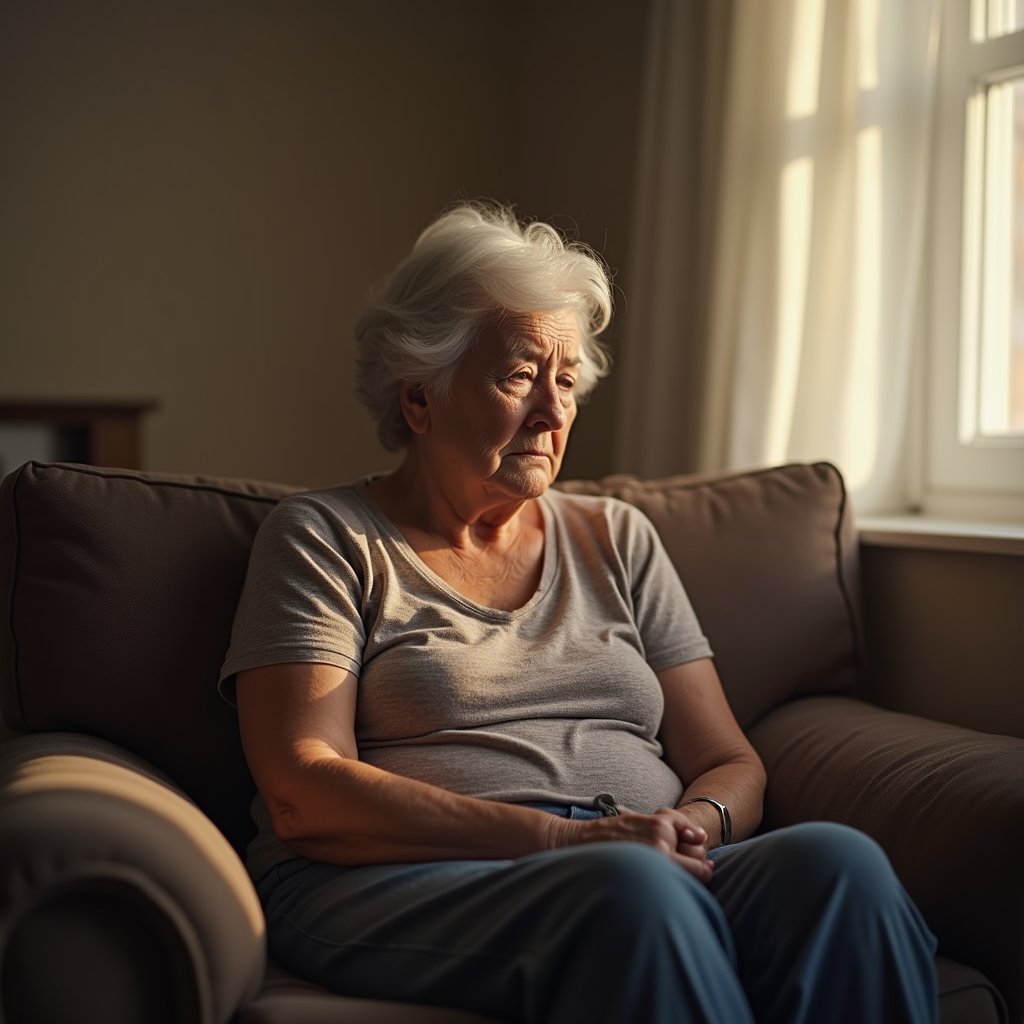
Understanding the physiological mechanisms behind these physical symptoms reveals how your body’s stress response system directly produces tangible health effects. When you’re anxious about your health, your body activates its fight-or-flight response, releasing stress hormones like cortisol and adrenaline.
These physiological reactions trigger a cascade of changes: your heart rate increases, muscles tense, breathing quickens, and blood pressure rises. Your digestive system slows down, while your immune system’s functioning temporarily shifts. When this stress response persists due to ongoing health anxiety, you’ll experience real physical manifestations like headaches, muscle tension, and gastrointestinal issues. The sustained elevation of stress hormones can also affect your sleep patterns, energy levels, and inflammatory responses, creating a cycle where anxiety about your health actually produces the symptoms you’re worried about.
Breaking the Cycle of Health-Related Fear
Breaking free from the cycle of health-related fear requires a strategic combination of cognitive restructuring and behavioral modification techniques. Through evidence-based fear management strategies, you’ll learn to recognize and challenge anxiety-provoking thoughts about your health. Cognitive reframing helps you develop more balanced interpretations of physical sensations.
- Practice mindful awareness of your thoughts without immediately jumping to worst-case scenarios
- Document your symptoms objectively rather than catastrophizing them
- Set specific times for health monitoring instead of constant body scanning
- Gradually expose yourself to health-related situations that trigger anxiety
When you implement these techniques consistently, you’ll strengthen your ability to differentiate between genuine health concerns and anxiety-induced symptoms. This systematic approach helps rewire your brain’s response to health-related triggers, creating lasting behavioral change and reducing the impact of health anxiety on your daily life.
Medical vs. Anxiety-Induced Symptoms
Building on effective fear management strategies, distinguishing between genuine medical symptoms and anxiety-induced physical sensations represents a key challenge for those with health anxiety.
Symptom differentiation requires understanding how anxiety manifests physically. When you’re anxious, your body releases stress hormones that can cause rapid heartbeat, sweating, muscle tension, and shortness of breath. These reactions often mirror serious medical conditions, making accurate self-assessment difficult.
To improve your ability to identify anxiety triggers, track your symptoms’ timing and context. Medical symptoms typically persist regardless of your emotional state, while anxiety-induced sensations often intensify during stress and ease during relaxation. You’ll notice that anxiety symptoms tend to peak quickly and gradually subside, whereas genuine medical issues usually develop more steadily and follow predictable patterns of progression.
Coping Strategies and Self-Management Tools
While managing health anxiety can feel overwhelming, several evidence-based coping strategies and self-management tools have proven effective at reducing symptom-related distress. You’ll find that incorporating mindfulness practices and stress management techniques into your daily routine can greatly decrease anxiety-driven physical symptoms.
- Practice deep breathing exercises and progressive muscle relaxation to reduce physiological stress responses
- Maintain a symptom diary to identify anxiety triggers and distinguish between genuine medical concerns and anxiety-induced sensations
- Engage in regular mindfulness meditation to develop awareness of thought patterns and reduce catastrophic thinking
- Implement structured stress management routines, including regular exercise, adequate sleep, and time blocking for worry sessions
These evidence-based approaches can help you regain control over anxiety-driven physical symptoms while developing healthier coping mechanisms.
When to Seek Professional Help
Although many individuals can manage health anxiety through self-help strategies, it’s crucial to recognize when professional intervention becomes necessary. You should seek professional support if your health anxiety considerably disrupts your daily activities, relationships, or work performance.
Key warning signs include persistent intrusive thoughts about illness, frequent panic attacks, excessive medical visits, or avoiding medical care altogether due to fear. If you’re spending hours researching symptoms online, constantly seeking reassurance, or experiencing worsening physical manifestations of anxiety, it’s time to consult a mental health specialist.
Professional intervention, such as cognitive behavioral therapy or medication management, can provide targeted treatment approaches that address both the psychological and physiological aspects of health anxiety, helping you develop more effective coping mechanisms and restore quality of life.
The Role of Digital Health Information
In today’s technological age, access to online health information has fundamentally transformed how people engage with medical knowledge and manage their health concerns. While digital literacy empowers you to make informed health decisions, information overload can intensify health anxiety and lead to excessive symptom monitoring.
- Online symptom checkers can escalate minor concerns into severe health fears due to worst-case scenario presentations
- Social media health discussions often lack medical validation and can spread misinformation
- Digital health forums might reinforce anxiety through shared experiences of health fears
- Multiple conflicting sources can create confusion and uncertainty about symptoms
To effectively use digital health resources, you’ll need to critically evaluate sources, limit your searching time, and prioritize information from reputable medical organizations. Keep in mind that online research should complement, not replace, professional medical guidance.
Building a Balanced Health Awareness
Since maintaining ideal health requires careful balance, developing healthy awareness means finding the middle ground between vigilance and excessive worry. You’ll need to cultivate awareness without letting it spiral into anxiety-producing behavior.
Implementing mindful practices can help you stay attuned to your body’s signals while maintaining emotional distance from health-related thoughts. Try setting specific times for health check-ins rather than constant monitoring. Establish a balanced lifestyle that includes regular exercise, proper nutrition, and adequate sleep, but avoid becoming rigid about these routines.
Monitor your response to health information by asking: “Is this concern proportional to the symptoms?” and “Would I give this same advice to a friend?” This approach helps you maintain perspective while acknowledging legitimate health needs without falling into patterns of health anxiety.
Frequently Asked Questions
Can Health Anxiety Be Inherited From Parents to Children?
Yes, you can inherit a predisposition to health anxiety through both genetic and environmental factors. Research shows there’s a genetic component that may make you more susceptible to anxiety disorders. Moreover, you’ll likely pick up behaviors through parental influence if you grow up watching your parents display excessive health concerns, you’re more likely to develop similar patterns. This combination of genetic predisposition and learned behavior shapes your relationship with health anxiety.
Does Health Anxiety Affect Memory and Cognitive Function?
Yes, health anxiety can greatly impact your cognitive function and memory. When you’re constantly preoccupied with health concerns, you may experience memory impairment due to your attention being diverted to bodily sensations and worries. This anxiety can lead to cognitive distortion, where you’ll have difficulty concentrating and processing information effectively. Research shows that the stress hormones released during anxiety states can temporarily affect your brain’s memory formation and recall abilities.
How Long Does It Typically Take to Recover From Health Anxiety?
The recovery timeline for health anxiety varies considerably among individuals, but with proper treatment, you’ll typically see improvements within 12-16 weeks. Using evidence-based coping strategies like Cognitive Behavioral Therapy (CBT), mindfulness, and exposure therapy can accelerate your recovery. You’ll need consistent practice and patience, as some people recover within months while others may take a year or longer, depending on severity and commitment to treatment.
Can Certain Medications Make Health Anxiety Symptoms Worse?
Yes, certain medications can intensify your health anxiety symptoms. Some antidepressants, stimulants, and even over-the-counter medications may have side effects that mimic anxiety symptoms, creating a challenging cycle. When you experience medication side effects like increased heart rate or dizziness, these physical sensations can become anxiety triggers. It is crucial to discuss any concerns with your healthcare provider, who can adjust your medication or suggest alternatives to better manage your symptoms.
Is Health Anxiety More Common in Specific Age Groups or Demographics?
Health anxiety affects people across all life stages, but you’ll find it’s more prevalent among certain demographics. Research shows young adults (18-35) and middle-aged individuals often experience higher rates. Demographic factors like education level, socioeconomic status, and gender can influence its occurrence, with women typically reporting higher rates than men. You’ll also notice increased prevalence among people with chronic health conditions or those who’ve experienced significant health-related trauma.
